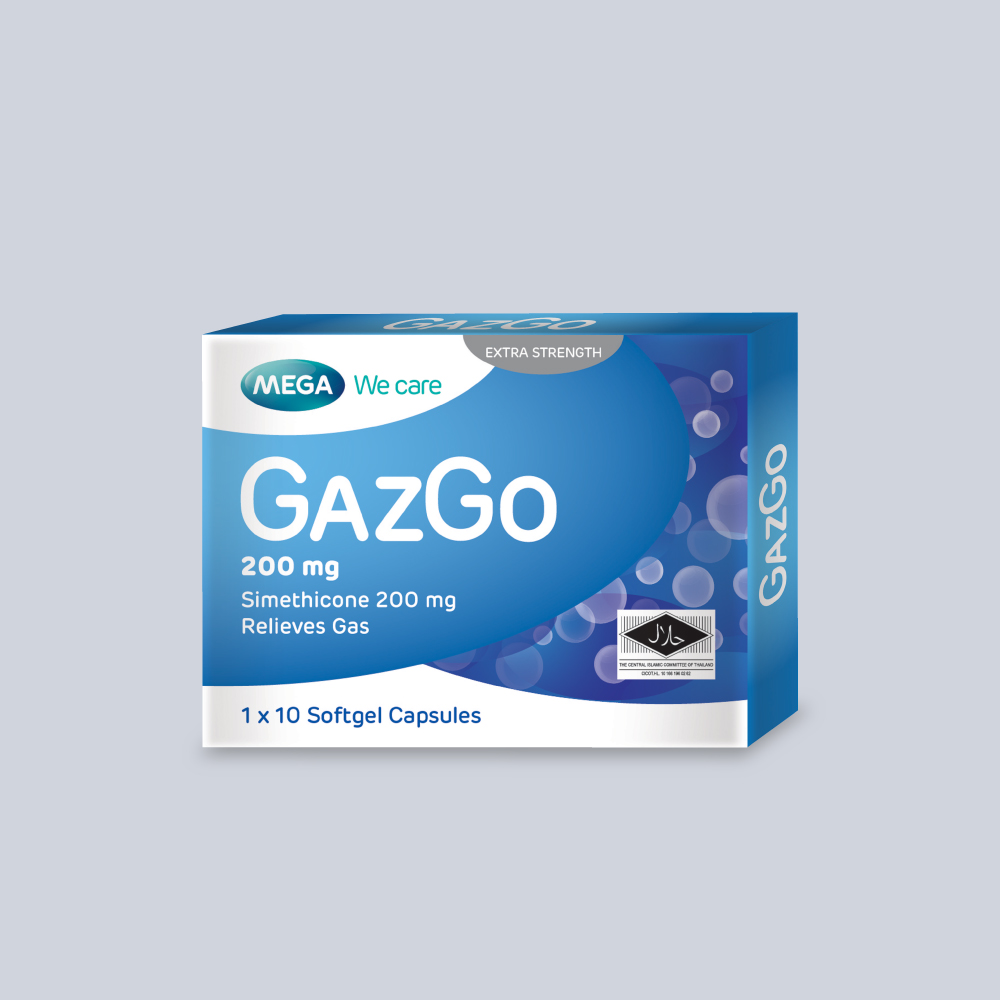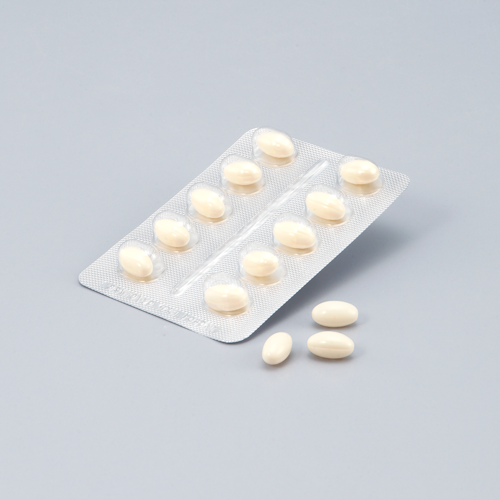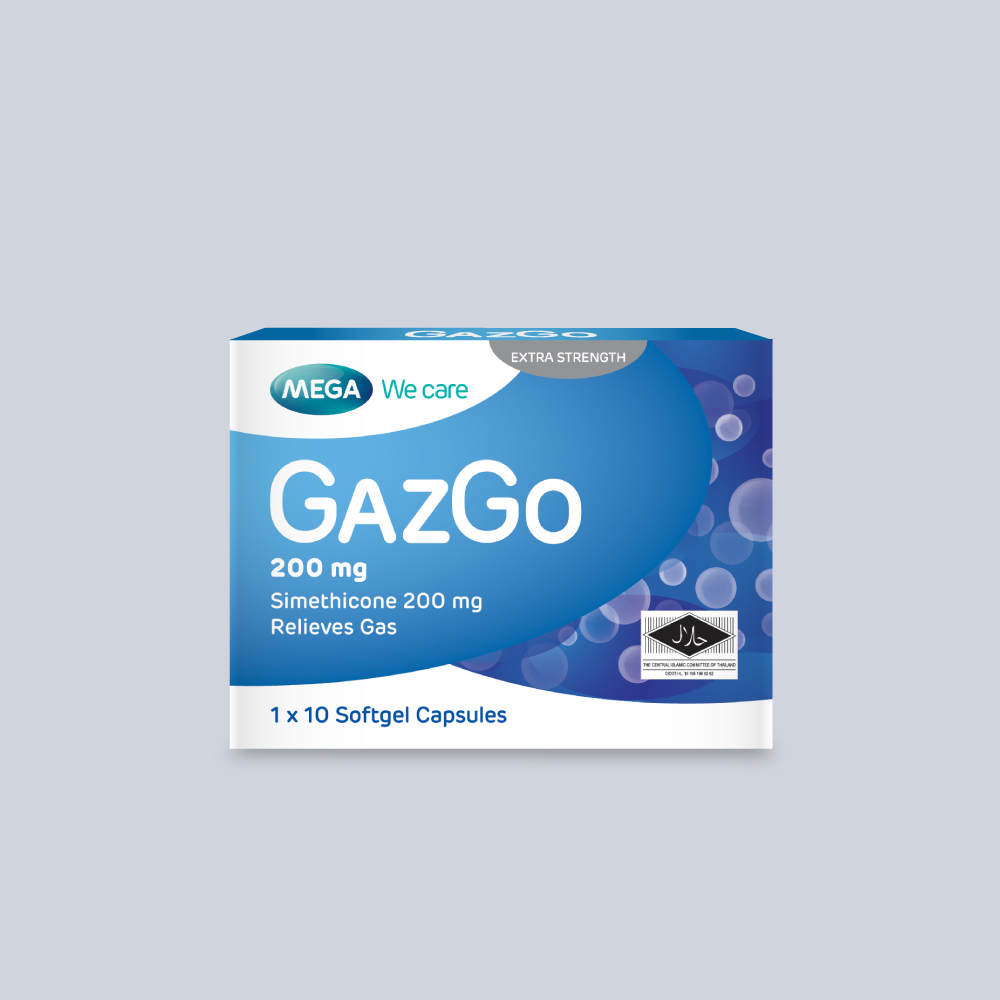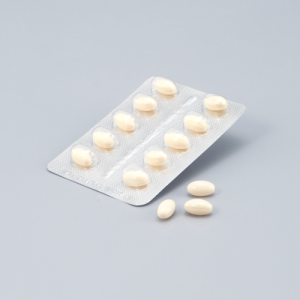How does GAZGO help in improving discomfort caused by excessive gas?
- Simethicone stimulate the elimination of intestinal gas and prevent excessive gas formation .
- Simethicone shows defoaming properties which break the small gas bubbles surface by reducing the surface tension .
- Simethicone has been widely used as an effective anti-flatulence, typically for those experiencing excessive intestinal gas symptoms due to functional dyspepsia (indigestion) , GERD (Gastroesophageal Reflux Disease), diarrhea or other intestinal issues.
- Simethicone is not absorbed by the intestine and will be eliminated out of the body.
Who are recommended to take GAZGO?
- Adult with symptoms of excessive intestinal gas (e.g., abdominal fullness and discomfort, bloating).
- Adult with gastrointestinal disorders (eg, GERD or dyspepsia) that cause symptoms of excess intestinal gas.
What is the recommended dosage?
Adult: Swallow 1 capsule up to 4 times daily, take after meal and at bedtime.
Ingredients
| Simethicone | 200mg |
Contraindications
- Hypersensitivity to simethicone
- Known or suspected intestinal perforation and obstruction
Adverse Effects
Although oral administration of simethicone is generally well tolerated when used as directed, the following adverse reactions have been observed on rare occasions: diarrhea (mild), nausea, regurgitation, vomiting, bloating, heartburn and constipation.
This is a medicine product advertisement
MAL 14125133XS
KKLIU 0251/2023
Valid till 31 Dec 2025
FAQ
Q1: Why do we have excessive gas in the digestive system?
- It is normal for us to have gases in the digestive system. However, several reasons cause some of us to get too much gas or slow in gas elimination, and thus, experiencing excessive gas:
- Food – certain foods are known to cause overproduction of gas, such as fermentation of incomplete absorbed carbohydrate (eg, complex carbohydrate) in the colon; lactose; legumes; fried or fatty food; eating too much fiber; carbonated beverages; artificial sweetener.
- Gastrointestinal disorders – functional dyspepsia (indigestion); gastroesophageal reflux disease (GERD); irritable bowel syndrome (IBS); peptic ulcer; lactose intolerance; Celiac disease; Crohn’s disease.
- Swallowed too much air – certain lifestyle habits such as eat or drink too fast, tend to swallow often because of feeling nervous; smoking, drinking from straw; wearing loose dentures.
- Others – taking antibiotics which disrupt healthy balance of good bacteria; laxative; having constipation (slow bowel movement increase the difficulty to pass gas); pre-menstrual symptoms (eg bloating happens due to hormonal changes).
















